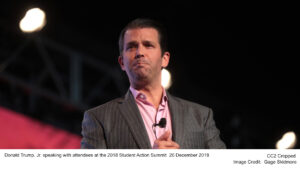The Supreme Court, led by Chief Justice John Roberts, declined to block Honolulu’s lawsuits against oil companies on Monday. This decision allows the city to seek damages for alleged deceptive marketing about climate change. The fossil fuel industry had hoped the court would intervene, citing a need for federal oversight on interstate pollution.
- Supreme Court’s Decision: The court declined to block Honolulu’s lawsuits against oil companies, allowing state courts to handle the cases, despite energy companies’ push for federal oversight.
- Honolulu’s Allegations: The city accuses the fossil fuel industry of deceptive marketing, focusing on climate change disinformation rather than regulating emissions.
- Broader Implications: The ruling could pave the way for similar lawsuits in other states, raising the stakes for energy companies in climate accountability disputes.
- Federal vs. State Jurisdiction: The oil industry argues state lawsuits conflict with federal energy policies, but the Supreme Court’s decision emphasizes state courts’ role in addressing such cases first.
Energy companies like Sunoco and Shell argued that emissions result from global activities, not isolated incidents. They believed Honolulu’s claims conflicted with federal policies. However, the Supreme Court’s refusal means the cases will proceed in Hawaii state courts. The Biden administration had advised the court to delay involvement, suggesting the state courts should address federal issues first.
Honolulu accuses the oil industry of misleading consumers about climate change effects. The city claims companies promoted fossil fuels without warning of environmental impacts. Honolulu’s lawsuit focuses on deceptive practices rather than regulating emissions. The legal battle reflects a broader challenge against the fossil fuel industry’s role in climate change.
The decision frustrates the oil industry, which fears similar lawsuits in other states. Honolulu asserts that the industry concealed climate risks through disinformation. The case highlights tensions between local governments and energy giants over accountability for environmental harm.
The oil companies argue that their actions align with federal energy policies. They claim state lawsuits undermine national interests and violate federalism principles. However, the Supreme Court’s stance suggests these issues should be resolved at the state level first.
As the lawsuits proceed, the court’s decision may influence other cases nationwide. It underscores the complex intersection of environmental accountability and corporate responsibility. The ruling represents a significant moment in the ongoing debate over climate change and energy policy.







Be First to Comment